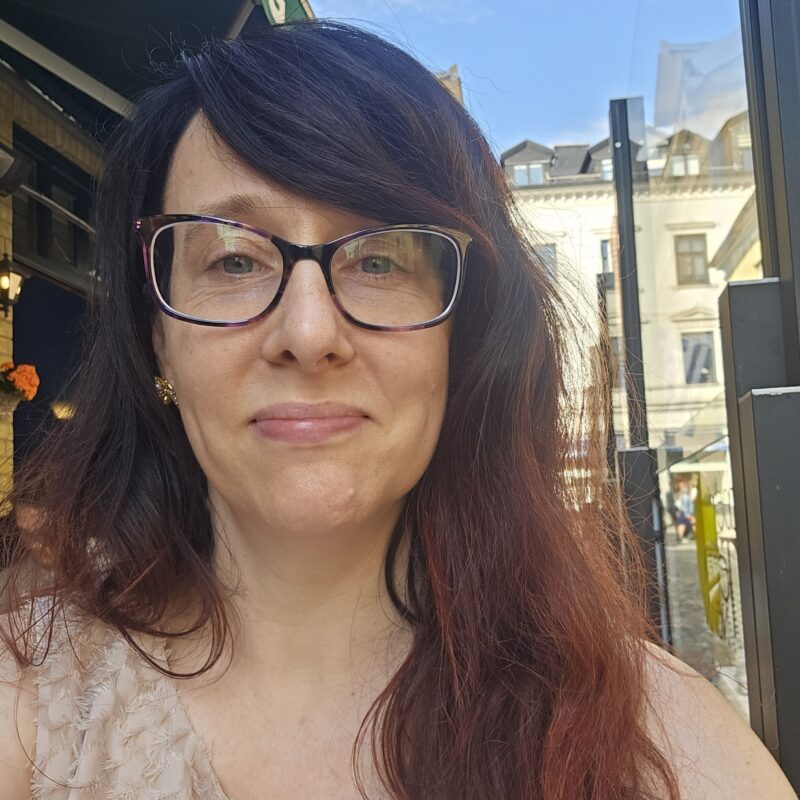Podcast as Catalyzing Invitation
by Lisa Unangst
Assistant Professor
Empire State University (SUNY)
I vividly recall, during the first semester of my doctoral studies, sitting with six cohort-mates in our seminar and hearing our professor say that many academic works – dissertations and beyond – focus on:
- applying an existing theory/model to a new context;
- replicating an existing study in a new time/space; or
- creating typologies with indications for future research and practice.
This has stuck with me since then. In fact, it’s one of the ways that I find myself filtering new information about my particular areas of concentration: the intersection of migration (e.g., Unangst, et al., 2022a), “diversity”(e.g., Unangst, et al, 2022b) and internationalization (e.g., Unangst and Barone, 2019). Of course, it’s a bit artificial to say that studies only do one of these things as many probe models, contexts, and establish orders of understanding in parallel. But it has been helpful for me to think about what seems to be driving the study aside from the specific research questions identified; to think about what authors do that is new, whether it’s a core part of their study or a glittering observation.
FreshEd, from my perspective, offers reflections on the spaces, typologies, and applications mentioned by my first term professor on that fall day outside Boston but it also pushes beyond them. Take for example Angela Little’s contribution of December 2018, ‘Defining the field of comparative education?’ Through an invitation in its very title, it gestures towards a duality of collective uncertainty and understanding. That is, Little refers to the types of uncertainties and understandings that they have encountered in exploring the definition of comparative education with colleagues across policy, research, and practice, as well as across national settings. Through those dialogues, we hear, what in one sense is familiar (education) becomes complicated, subjective, and perhaps even “strange” (in a generative sense). Drawing from decades of work, this conceptualization invites the listener to consider new kinds of typologies, for instance, new spaces for work, and the application of different theories than they might have previously.
Similarly, the recent contribution by Jessica Oddy situates ‘Education in Emergencies’ (EiE) as the site of colonialism, empire, and racial capitalism and thereby underscores EiE as construction. Moreover, Oddy observes that EiE may include adults and all levels of higher education but tends to focus on basic/primary education (a topic that itself is addressed by several excellent FreshEd podcasts including that of Mary Mendenhall, Garnett Russell, Elizabeth Buckner). This point – that indeed higher education systems are and must be involved in supporting learners during and after conflict – is vital but not always recognized. They provide a menu of engagements: teacher training, mental health services, advocacy for policy iteration, curricula in migration studies, physical space for displaced people, visa sponsorship of individuals, resources for community collaborations, etc. (with these engagements, programs, and collaboratives themselves contesting systemic oppressors within their own spaces). Here, the listener is invited to consider theories in a new context, EiE, but also to make meaning of EiE as (potential) site for emancipatory practice, considering not only de jure and de facto EiE, but also what transparency is and could be in this arena.
Jenny Lee’s contribution on the ‘Power and Internationalization of Higher Education’ addresses how Lee and colleagues have reconsidered Jane Knight’s definition of internationalization, adding emphasis on the role(s) of power and process, underscoring dynamic hierarchies of inclusion/exclusion. This responds to the current state of play, adapting an existing model, but again inviting – like scholars of the Critical Internationalization Studies Network have done, for instance – a contestation of power imbalance across higher education systems and structures worldwide.
In a class I am teaching on Qualitative Methods, I pair podcasts with journal articles to animate discussion of applications/perceptions of methods. Our learners at Empire State University are working professionals with deep knowledge and expertise in the practice of higher education. They are also people who routinely multitask: podcasts are a great way for many of them to engage, at different times and in different ways, with contemporary debates. I often hear from them that they consider new research approaches during those car ride, treadmill, or morning wakeup podcast listening sessions. They think about the typologies they know and how they alter them; they ponder new fusions of theories and models; they dream in “blue-sky” terms about studies that could and should be replicated. I am so grateful to FreshEd participants for sharing their expertise and inviting asynchronous, virtual collaboration – that is how I see what Dr. Lee, Dr. Oddy, and Dr. Little have done. They, and FreshEd editors, are catalyzing lifelong learning and new bodies of research.
May 1, 2024






